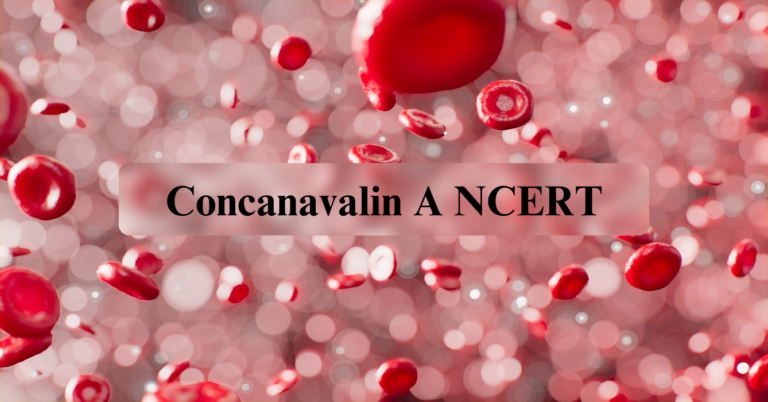Is NCERT Good for Physical Chemistry?
When it comes to studying physical chemistry, many students in India turn to NCERT (National Council of Educational Research and Training) textbooks. These well-known resources are considered a cornerstone of the education system. But the question that often arises is, “Is NCERT good for physical chemistry?”
In this comprehensive guide, we’ll explore the world of NCERT textbooks and their effectiveness in teaching physical chemistry, offering insights, tips, and answers to frequently asked questions.
Is NCERT Good for Physical Chemistry?
Physical chemistry, a fundamental branch of science, delves into the study of matter and the changes it undergoes. It plays a pivotal role not only in science but also in careers like engineering, medicine, and various scientific disciplines. The efficacy of NCERT textbooks in teaching physical chemistry is a subject of debate and curiosity among students. Let’s delve deeper into the matter.


Pros and Cons of Using NCERT for Physical Chemistry
| Pros | Cons |
|---|---|
| Aligned with Curriculum NCERT textbooks are meticulously designed to align with the curriculum prescribed by educational boards. | Lack of Depth NCERT may not cover advanced topics in great detail. Students pursuing a more in-depth understanding may need to seek additional resources. |
| Clear and Concise One of the strengths of NCERT textbooks is their clarity and conciseness. They provide students with clear explanations | Complex Problem Solving For those aiming to tackle complex problems in physical chemistry, NCERT may not provide an extensive range of such problems for practice. |
| Widely Accessible NCERT textbooks are readily available and affordable. Their accessibility ensures that students from various backgrounds can benefit from them. | Competitive Exams Students preparing for competitive exams like JEE or NEET often require a deeper knowledge of the subject beyond what NCERT offers. |
Supplementary Resources for Physical Chemistry
To address the limitations of NCERT, students often turn to supplementary resources such as:
Reference Books
Specialized physical chemistry books authored by experts offer in-depth explanations and a wealth of practice problems, making them valuable additions to the study routine.
Online Resources
Various websites, video lectures, and interactive platforms provide additional support for understanding complex concepts in physical chemistry.
Advanced Textbooks
Globally recognized books like “Atkins’ Physical Chemistry” offer comprehensive coverage and a deeper insight into the subject.
Tips for Effectively Using NCERT Textbooks
Active Engagement
Mere reading is not enough. To make the most of NCERT textbooks, students should actively engage with the material by solving exercises and problems.
Consolidate with Practice
Using supplementary resources, especially reference books, to practice and consolidate your understanding can be highly beneficial.
Self-Study
Encouraging self-study and exploring advanced concepts independently can significantly enhance your expertise in physical chemistry.
Striking a Balance
The key to success often lies in finding the right balance between NCERT and supplementary resources. While NCERT forms the foundation, reference books offer the depth needed for competitive exams and advanced studies.
Real-World Applications of Physical Chemistry
Understanding physical chemistry isn’t limited to academic pursuits. It has practical applications in various fields, including drug development, materials science, and environmental research. Knowing its real-world significance can motivate students to delve deeper into the subject.
Preparing for Competitive Exams
Many students aspire to excel in competitive exams such as JEE(Joint Entrance Examination) and NEET(National Eligibility cum Entrance Test). Success in these exams often requires a combination of NCERT and specialized reference materials.
Personalized Learning and Self-Study
Self-study and personal exploration of the subject can significantly enhance your expertise in physical chemistry. Embrace the opportunity to delve deeper into areas of personal interest.
Success Stories and Testimonials
Hearing about the experiences of students who have excelled in physical chemistry using a combination of NCERT and supplementary resources can be inspiring. Success stories can serve as a motivation for aspiring learners.
Conclusion
In conclusion, NCERT textbooks are indeed valuable resources for studying physical chemistry, especially for school and board exams. They provide a solid foundation and accessible content.
However, to excel in competitive exams or gain a more profound understanding of the subject, consider supplementing your studies with additional reference materials. Striking the right balance between NCERT and supplementary resources is often the path to success in the fascinating world of physical chemistry.
Frequently Asked Questions (FAQs)
- Is NCERT the only resource I need for physical chemistry?
Answer:No, while NCERT provides a strong foundation, students often use supplementary resources for a deeper understanding. - What are some recommended reference books for physical chemistry?
Answer:Books like “Physical Chemistry” by P. Bahadur and “Atkins’ Physical Chemistry” are highly regarded. - How can I effectively balance NCERT and reference materials in my study routine?
Answer:Create a structured study plan that combines the clarity of NCERT with the depth of reference books. - Are there any online platforms that offer additional support for learning physical chemistry?
Answer:Yes, there are numerous websites and educational platforms with video lectures and practice materials. - What careers benefit from a strong understanding of physical chemistry?
Answer:Careers in chemistry, physics, engineering, medicine, and environmental science are just a few examples that benefit from this knowledge.



